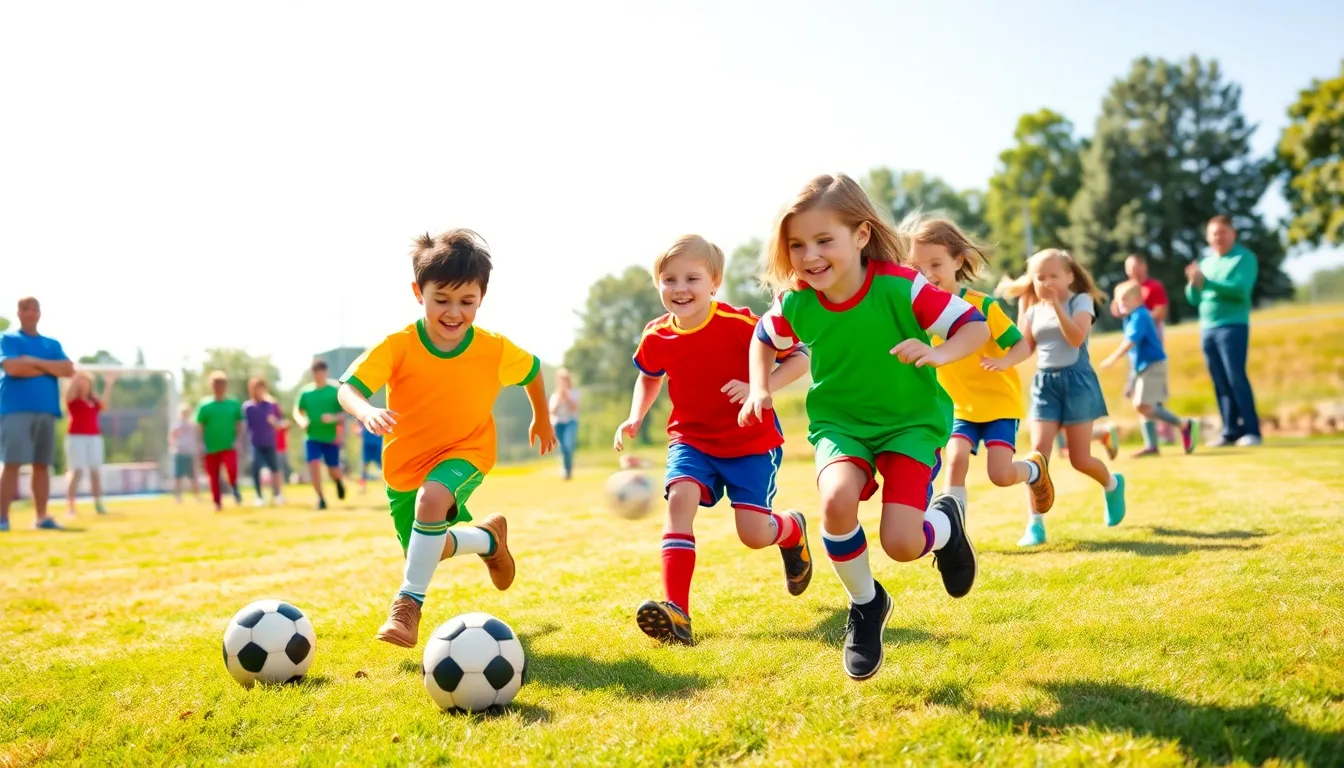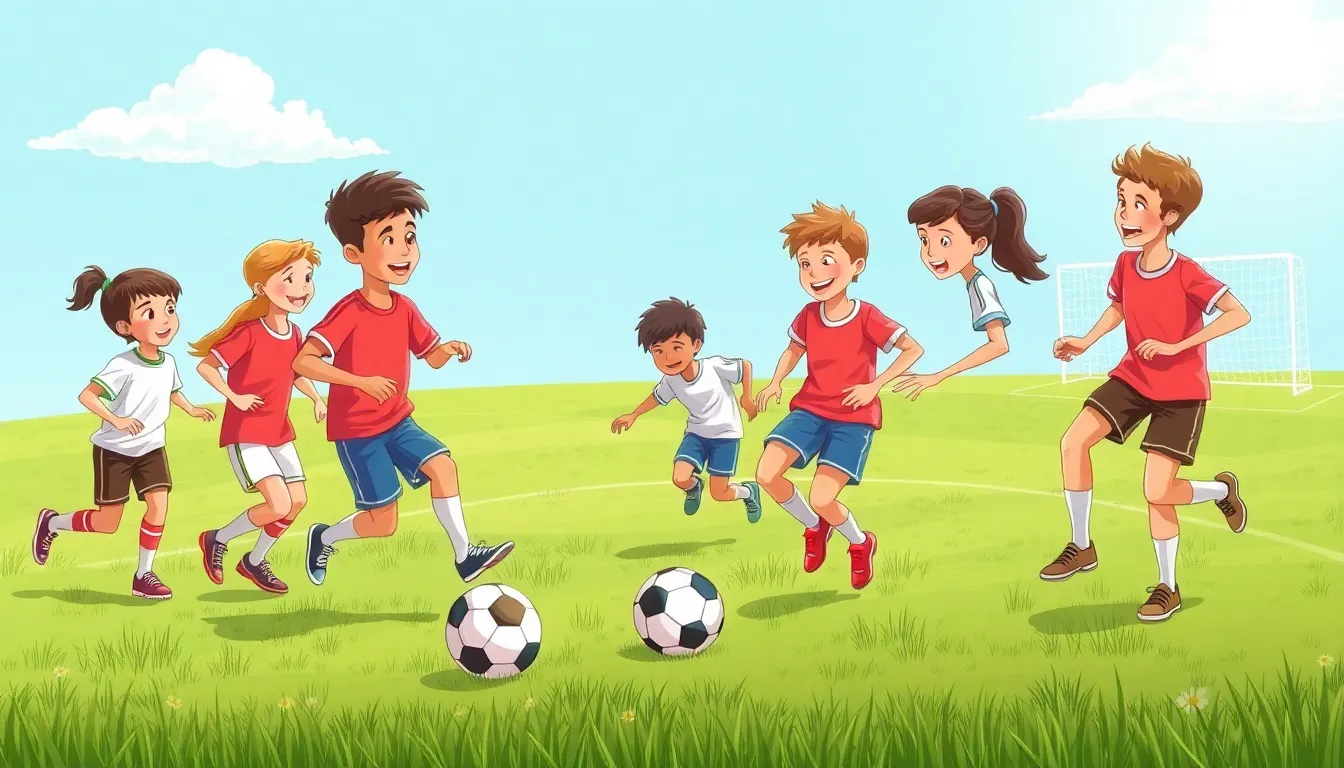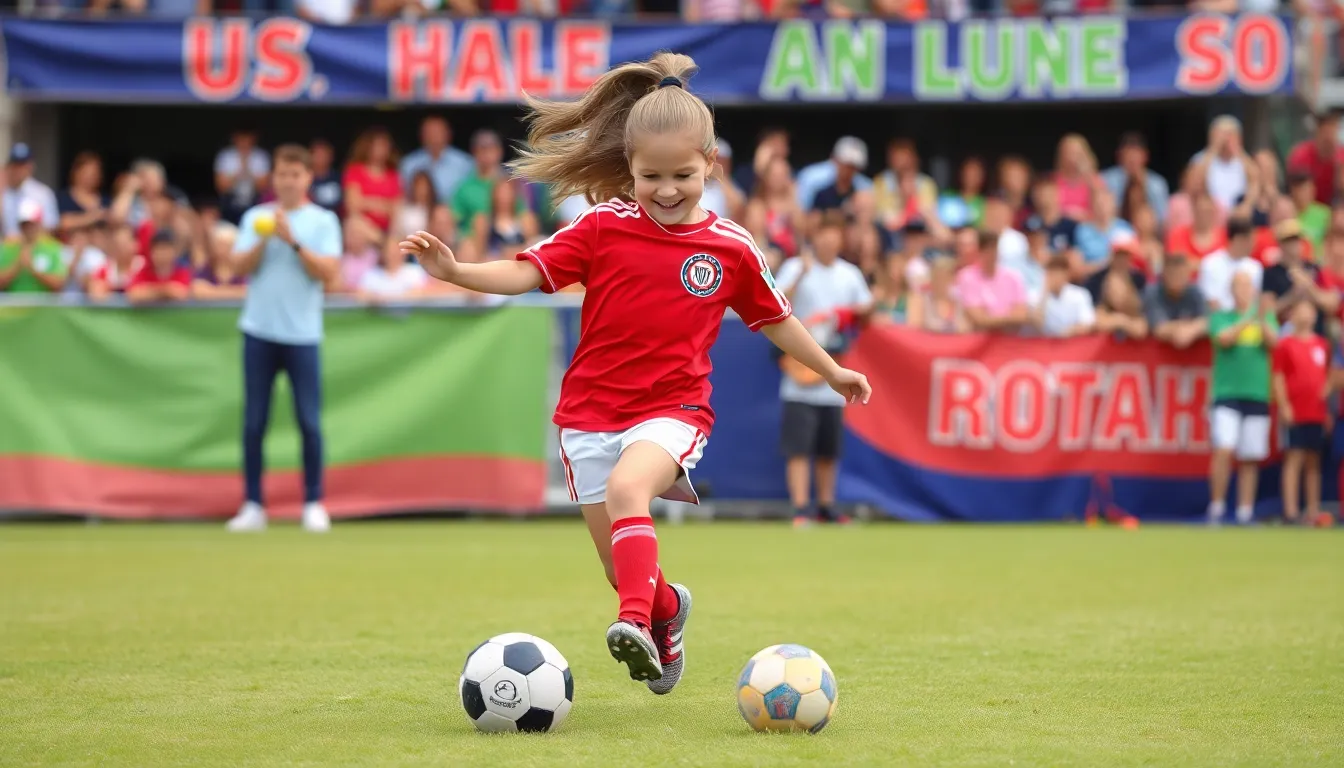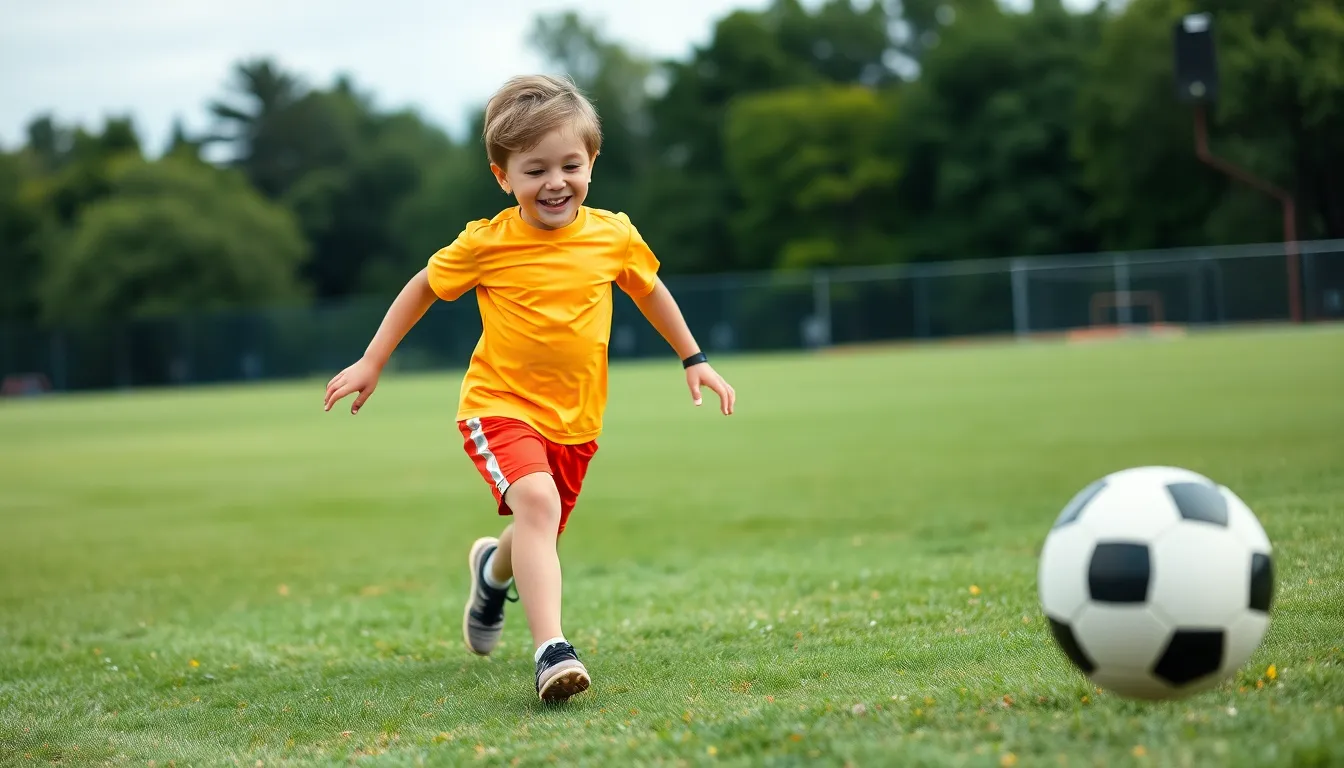When it comes to kids sports events, the excitement is palpable. Picture this: a sea of tiny athletes sprinting, tumbling, and occasionally tripping over their own shoelaces, all while parents cheer like they’re at the Super Bowl. These events aren’t just about the trophies; they’re a whirlwind of laughter, teamwork, and a few epic snack breaks that could rival any gourmet feast.
Table of Contents
ToggleOverview of Kids Sports Events
Kids sports events create an energetic environment filled with excitement and camaraderie. Young athletes participate in a variety of activities, ranging from soccer tournaments to track meets. Each event promotes physical fitness while developing key social skills among participants.
Various sports cater to different interests, encouraging children to find their passion. Soccer, basketball, baseball, and swimming often top the list of popular choices. Skill development occurs alongside teamwork, as kids learn to collaborate and support one another.
Parents and guardians play a vital role in creating a supportive atmosphere. They cheer on their young athletes from the sidelines, fostering motivation and boosting confidence. Snack breaks provide a much-needed reprieve, allowing kids to refuel and socialize.
Events cater to different age groups, ensuring that all children can participate. Organizers often set up leagues or tournaments, promoting healthy competition and sportsmanship. Engaging in these events introduces children to the joy of physical activity.
Participation in organized sports enhances children’s overall development. They improve coordination, build friendships, and boost self-esteem. Coaches emphasize the importance of effort over winning, instilling valuable life lessons.
Kids sports events serve as a foundation for lifelong appreciation of physical activity. Through play and interaction, children develop essential skills and create lasting memories, making these events a cherished experience.
Benefits of Participation


Participation in kids’ sports events offers numerous advantages that extend beyond the playing field. Engaging in sports helps children grow physically and socially.
Physical Health Advantages
Participating in sports promotes physical fitness and healthy lifestyles for kids. Regular activity builds strong muscles and bones, while enhancing cardiovascular health. Engaged kids often maintain healthier weights, reducing the risk of obesity. Studies show that children involved in sports develop better overall coordination and agility. Rates of chronic diseases can decrease as kids develop strong exercise habits at a young age. Physical activity also releases endorphins, which boost mood and reduce stress. Parents observe their children gaining stamina and energy, contributing to emotional balance and well-being.
Social Skills Development
Sports events provide a platform for kids to hone their social skills. Team activities encourage collaboration and teach the importance of working together. Children learn to communicate effectively, listen to teammates, and accept constructive criticism. Engaged in friendly competition, kids experience victories and losses together, fostering resilience and sportsmanship. Friendships often form through shared experiences, enhancing social networks. Exposure to diverse teammates helps children embrace inclusivity and respect for others. Through participation, they gain confidence and develop leadership qualities that serve them well in various life scenarios.
Popular Types of Kids Sports Events
Various types of kids’ sports events cater to different interests and skills. Engaging children in either team or individual sports provides multiple avenues for physical activity and social interaction.
Team Sports
Team sports are popular among kids, promoting cooperation and camaraderie. Soccer, basketball, and baseball rank among the favorites, offering structured environments where kids learn to collaborate towards a common goal. Participation in these activities not only enhances physical fitness but also develops critical social skills like communication and teamwork. Organized leagues provide age-specific opportunities, ensuring all skill levels find a place. Children involved in team sports often build lasting friendships and acquire lessons in sportsmanship.
Individual Sports
Individual sports offer a unique experience, allowing kids to excel independently. Options like swimming, gymnastics, and tennis encourage personal achievement and focus. These activities help children foster self-discipline and set personal goals. Participants receive direct feedback on performance, promoting growth and resilience. Individual sports often require practice outside of events, instilling a sense of responsibility in young athletes. Whether competing in local events or pursuing higher levels, these sports nurture confidence and independence, enhancing overall personal development.
Organization and Planning
Effective organization and planning are crucial for successful kids’ sports events. Organizers must create a structured schedule, ensuring that all activities run smoothly and on time.
Event Coordination
Event coordination involves several key components. First, establishing a clear lineup of activities helps keep participants engaged. Communication with parents and volunteers also plays a vital role in ensuring everyone understands their responsibilities. Setting up facilities suitable for the age groups involved is another essential aspect. Organizers should consider access to restrooms, shaded areas, and hydration stations. Finally, tracking registrations allows for appropriate resource allocation and adequate supervision, enhancing the overall experience for young athletes and their families.
Safety Considerations
Safety considerations are paramount in kids’ sports events. Assessments of facilities ensure that playing surfaces are safe and free of hazards. Having first aid kits on site is vital for addressing minor injuries promptly. Implementing age-appropriate rules helps minimize risks and encourages fair play. Educating coaches, volunteers, and parents on safety protocols establishes a secure environment. Lastly, ensuring sufficient adult supervision during events protects children from potential accidents and provides a sense of security for parents. By prioritizing safety, organizers reinforce a fun and positive atmosphere for everyone involved.
Kids’ sports events are more than just competitions; they’re a celebration of youth and community. The laughter and camaraderie experienced on and off the field create lasting memories for children and their families. These events not only foster physical fitness but also cultivate essential life skills like teamwork and resilience.
As children engage in various sports, they not only improve their physical health but also build friendships that can last a lifetime. The support from parents and coaches plays a vital role in nurturing their confidence and motivation. By prioritizing organization and safety, communities can ensure that every event is a positive experience, reinforcing a love for physical activity that can carry into adulthood.



